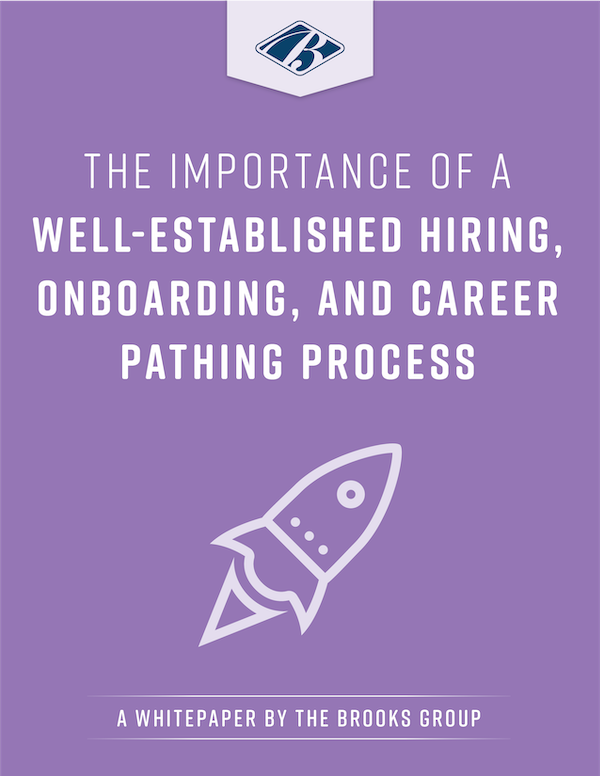Strong customer relationships are at the center of most successful businesses. So it makes sense that in order to succeed and grow, your sales team must be using some sort of Customer Relationship Management system.
Regardless of the software you choose, using a CRM platform will benefit you, your sales team, and your entire organization.
Here are 5 ways CRM systems can improve overall sales success (and tips for maximizing them with your team.)
1. Allows Sales Reps to Stay Organized
Success in sales is often dependent on simple things, like the ability to stay organized.
A CRM system can be incredibly beneficial to helping your sales reps keep track of all the information relating to prospect or customer interactions. They can collect data, track emails, and manage tasks that need to be completed.
CRM tools also allow salespeople to know exactly where in the sales cycle a particular client is at any given time. This improves sales funnel management and ensures that reps are aligning their sales process to the buyer’s journey.
Tip: Set expectations early on with sales reps by communicating that inputting info into CRM is the standard, not an option. Here is a post with more tips on how to get reps to use CRM.
2. Uncovers Opportunities for Sales Coaching
You should communicate with your sales reps that you’ll be analyzing CRM data to help them improve, not to penalize them.
With visibility and easy access to data such as marketing campaigns, outreach activity, appointments set, etc. a CRM system can give you a clear view into how well your reps are performing in each stage of the sales process.
You can take that information and develop targeted coaching for each of your sales team members.
Tip: When it comes to tracking data, focus on just a handful of core metrics. Determine which measurements have the most impact on your business and sales results and which provide opportunities to intervene with coaching. Stick to those.
3. Improves Sales Forecast Accuracy
The accuracy of your sales forecast impacts everything in your organization, from revenue projections to hiring and production capacity decisions.
Use the tools and features in your CRM to track the data that’s most important to you, and that will give you the most accurate pipeline predictions.
You can identify factors that impact the probability of closing a deal by tracking granular data within your CRM. Factors such as the size of the deal, the size of the company, the industry, and the number of stakeholders involved can all have an impact on probabilities.
Tip: Consider creating incentives for your reps to produce accurate sales forecasts. Most reps shy away from making changes to opportunities when the news isn’t good, so encourage honesty by rewarding it.
4. Builds Strong Customer Relationships
CRM software offers more than just lead management support. The ability to add customer data helps sales reps improve the customer experience and build stragetic, long-term relationships with clients.
Every client or lead that works with your team members should feel like they are of the highest priority. Having customer data together in one place allows your reps to quickly find the information they need during customer interactions and avoid having to ask the same question more than once.
Tip: Invest in a cloud-based CRM with a mobile app. Accessing information anytime, anywhere from a mobile device is important for reps who are often on the go.
5. Aligns Sales and the rest of the Organization
It’s likely that your sales reps are not the only members of your organization who come in contact with customers. To maintain a high level of customer satisfaction (and to maximize the buying potential of all your accounts) it’s critical to create alignment between departments.
In fact, there’s research to show that cross-departmental alignment increases sales performance.
Extending your CRM software to teams such as Marketing, Customer Service, Finance, etc. will improve efficiency and collaboration and drive a sales focus across your business.
Tip: Train teams that work closely with the sales department in your selling process. Doing so will get everyone speaking the same language—making conversations about leads and customers efficient, and driving a customer-centric culture in your business.
Conclusion
A CRM gives everyone across the business—including sales, customer service, marketing, and account managers—a better way to manage the customer relationships and interactions that drive success.
Regardless of the CRM software you choose, be sure that your team is also following a consistent, buyer-focused sales process like IMPACT Selling®. It’s beneficial to train teams outside of sales in the process as well to create alignment and a strong sales focus.
With IMPACT as your operating system, your teams will be able to understand customer needs, develop relevant sales collateral, identify untapped revenue potential, and sell more to customers who are ready to buy.
Request a strategy session to learn how to align your teams with IMPACT and start achieving sustainable performance lift today.
The Importance of a Well-Established Hiring, Onboarding, and Career Pathing Process
The thing that separates successful organizations from those that fail is the people they have on their teams. In this in-depth whitepaper, you’ll learn the secrets to creating a standardized hiring, onboarding, and career pathing process that can be used with every new member you bring onto your team.





